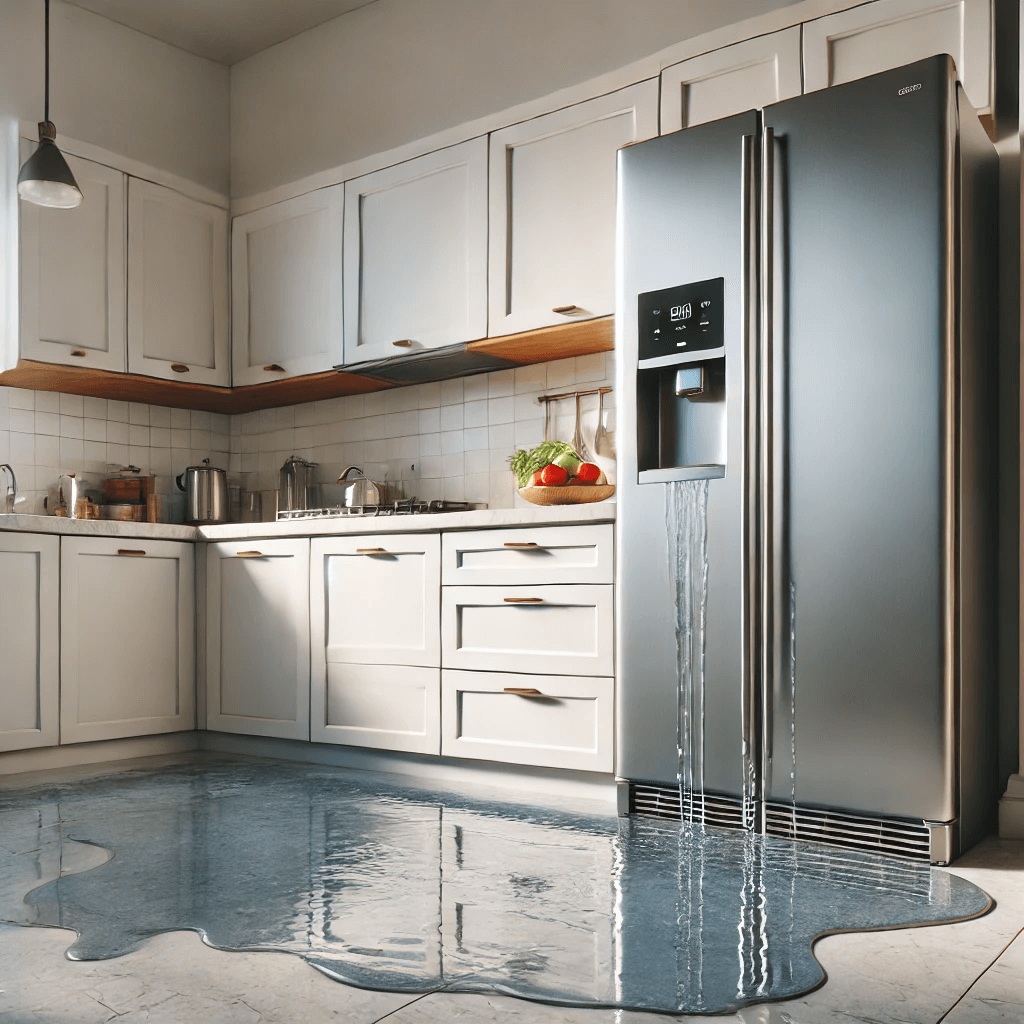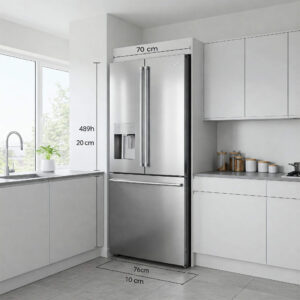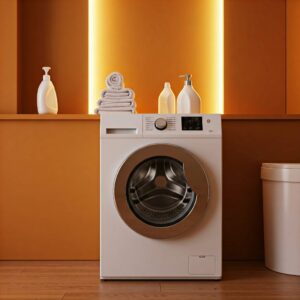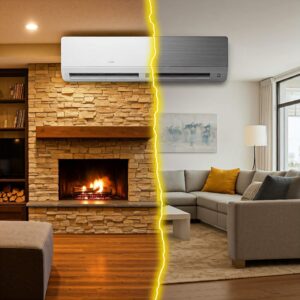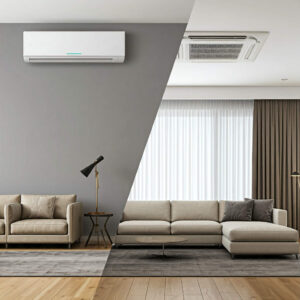Have you ever walked into your kitchen to find a puddle of water pooling around your refrigerator? It can be a startling and frustrating discovery, leaving you wondering, “Why is my refrigerator leaking water?” Don’t worry; you’re not alone. This issue is surprisingly common and can be caused by a variety of factors. In this blog, we will explore the potential causes of a leaking refrigerator, offer practical solutions, and provide tips on how to prevent this problem from happening in the future.
Understanding the Basics
Before diving into the causes and solutions, it’s important to understand the basic mechanics of how a refrigerator works. At its core, a refrigerator uses a refrigeration cycle to keep your food cool. This cycle involves a refrigerant that moves through various components, including the evaporator and condenser coils, to remove heat from inside the fridge and release it outside.
The refrigerator also has a defrost system that periodically melts any frost that builds up on the evaporator coils. This melted frost turns into water, which typically drains out through a tube into a pan at the bottom of the fridge, where it evaporates.
Now that we’ve got a basic understanding, let’s delve into the common reasons why your refrigerator might be leaking water.
Common Causes
1. Blocked Defrost Drain
One of the most common causes of a leaking refrigerator is a blocked defrost drain. The defrost system melts frost on the evaporator coils, and the water should flow down a drain into a pan at the bottom. However, if food particles, ice, or debris clog this drain, the water backs up and leaks out of the fridge.
Solution: To fix a blocked defrost drain, you’ll need to locate the drain hole, usually found at the back or bottom of your refrigerator’s interior. Using a turkey baster or a pipe cleaner, carefully clear any blockages. You might also pour a mixture of warm water and baking soda down the drain to ensure it’s thoroughly unclogged.
2. Faulty Water Inlet Valve
If your refrigerator has an ice maker or a water dispenser, a faulty water inlet valve could be the culprit behind the leak. The water inlet valve controls the flow of water into these components. If it becomes loose or damaged, it can cause water to leak out and pool around the fridge.
Solution: Check the water inlet valve, usually located at the back of the refrigerator near the bottom. Ensure that it’s securely connected and inspect it for any signs of damage or wear. If you find any issues, replacing the valve might be necessary. Be sure to turn off the water supply before attempting any repairs.
3. Damaged Door Gasket
The door gasket, also known as the door seal, plays a crucial role in maintaining the refrigerator’s internal temperature by sealing the cold air inside. Over time, this gasket can wear out, crack, or become misaligned, allowing warm air to enter and cause condensation inside the fridge, which can lead to leaks.
Solution: Inspect the door gasket for any signs of damage, such as cracks or gaps. If the gasket is dirty, clean it with warm soapy water and a soft cloth. For damaged gaskets, you might need to replace them. Fortunately, door gaskets are relatively easy to replace and can be purchased from most appliance stores.
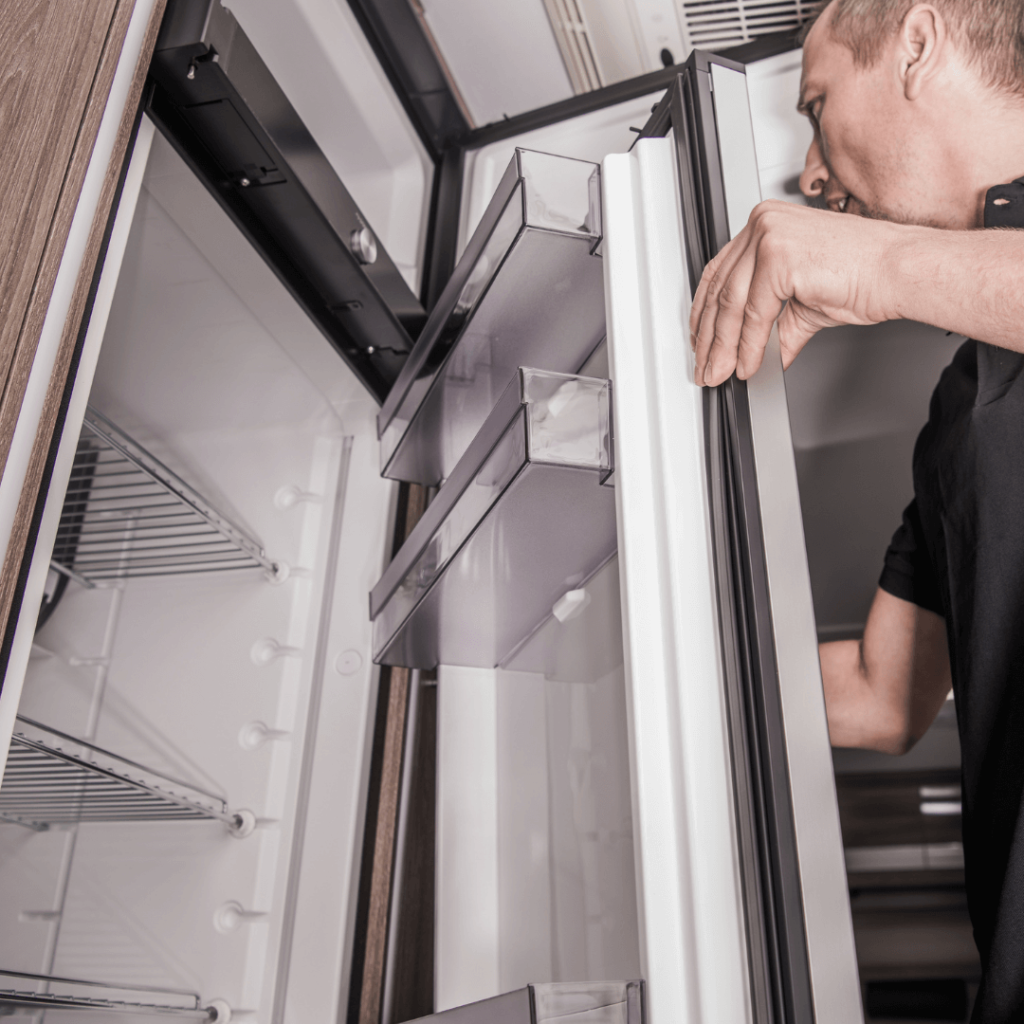
4. Improperly Leveled Refrigerator
An improperly leveled refrigerator can also cause water leakage. If your fridge isn’t level, water may not flow into the defrost drain properly, leading to pooling and leakage.
Solution: Use a level to check if your refrigerator is sitting evenly. If it’s not, adjust the leveling legs or rollers at the bottom of the fridge until it’s balanced. This simple adjustment can help ensure that water drains correctly and prevent leaks.
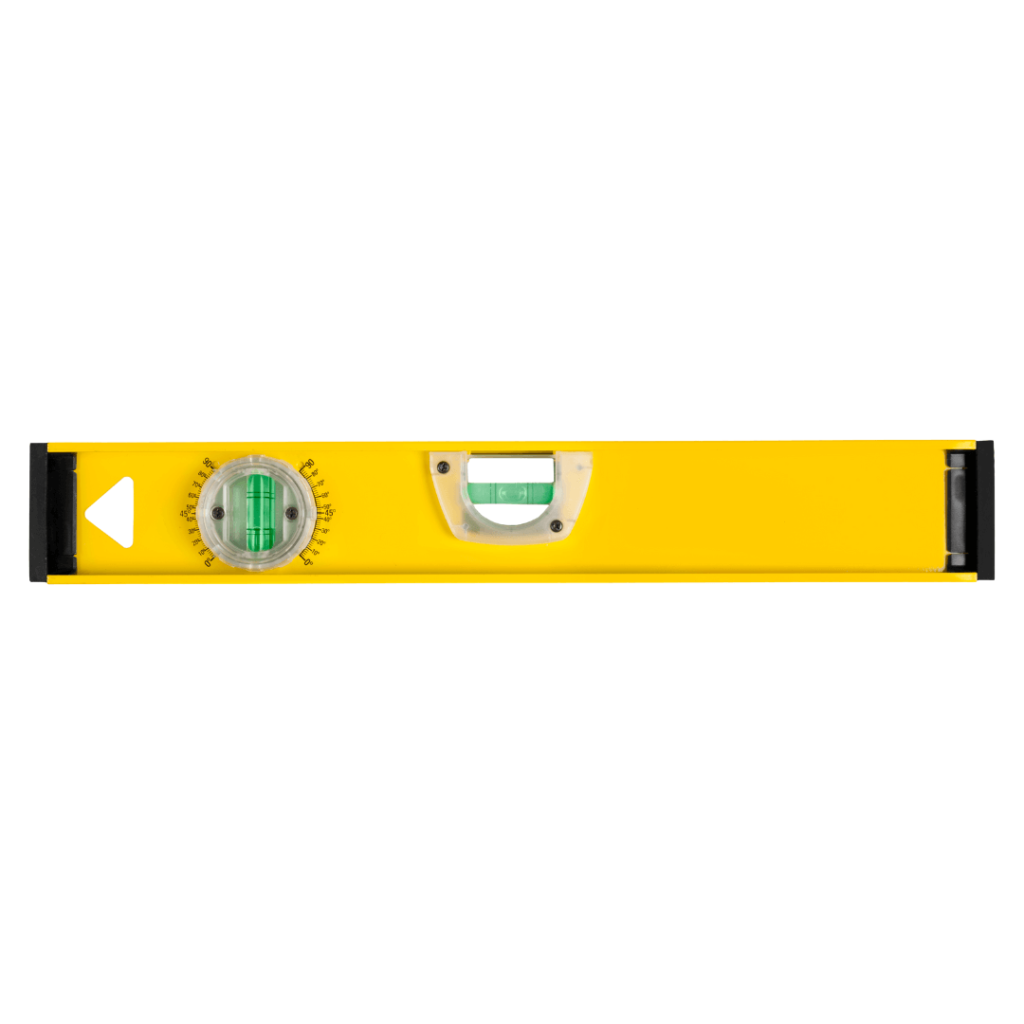
5. Cracked or Full Drain Pan
The drain pan, located at the bottom of the refrigerator, collects water from the defrost drain. If this pan is cracked or full, it can cause water to overflow and leak onto your kitchen floor.
Solution: Inspect the drain pan for any cracks or damage. If it’s damaged, you’ll need to replace it. If the pan is simply full, empty it and clean it thoroughly before putting it back in place.
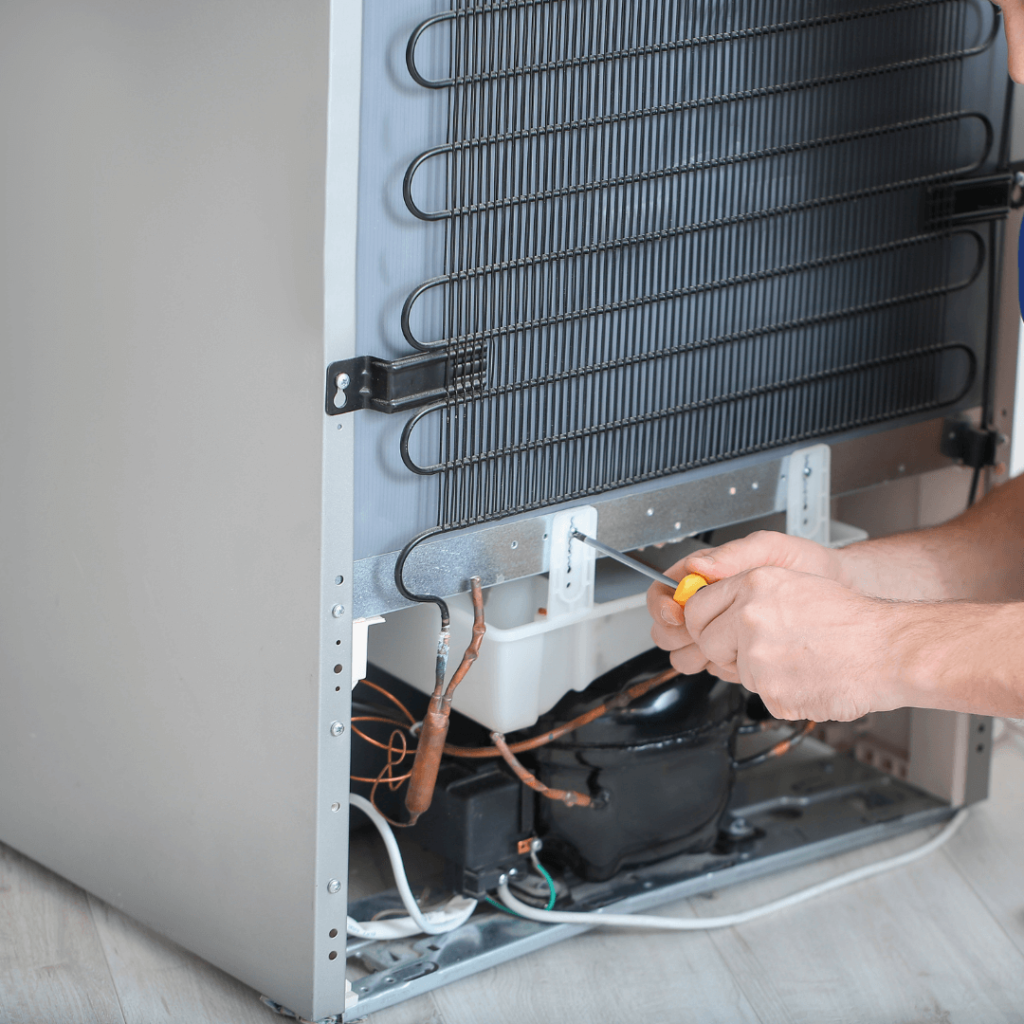
6. Ice Maker Issues
Ice makers are a convenient feature, but they can sometimes cause leaks if not functioning properly. Issues like a misaligned ice maker, a blocked ice chute, or a clogged water line can all lead to water leakage.
Solution: Ensure that the ice maker is properly aligned and that the ice chute is clear of any obstructions. Check the water line for any blockages or damage. If necessary, consult your refrigerator’s manual for specific troubleshooting steps related to the ice maker.
7. Excessive Humidity
In regions with high humidity, condensation can form inside the refrigerator, leading to water buildup and potential leaks. This is especially true if the door is frequently opened and closed, allowing warm, humid air to enter.
Solution: To minimize condensation, try to limit the number of times the refrigerator door is opened. You can also use a dehumidifier in your kitchen to reduce overall humidity levels. Additionally, ensure that the door gasket is sealing properly to keep humid air out.
8. Incorrect Temperature Settings
Setting your refrigerator or freezer to the incorrect temperature can also lead to water leakage. If the temperature is too low, it can cause excessive frost buildup, leading to more frequent defrost cycles and potential drainage issues.
Solution: Check the temperature settings in your refrigerator and freezer. The recommended temperature for a refrigerator is between 1.7 to 3.3°C, and for a freezer, it’s -17 to -15°C. Adjust the settings if necessary to ensure optimal performance and prevent leaks.
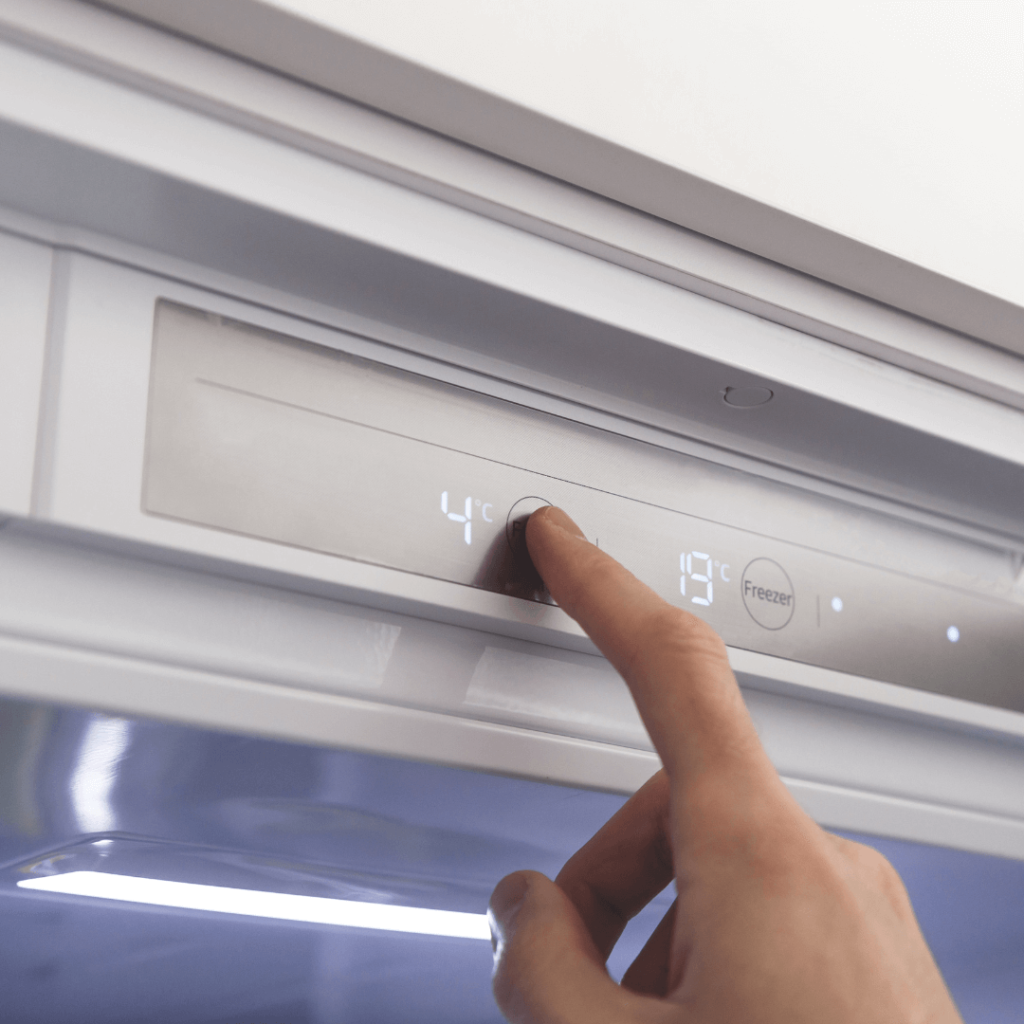
Preventive Measures
Now that we’ve covered the common causes and solutions for a leaking refrigerator, let’s look at some preventive measures you can take to avoid this issue in the future.
- Regular Maintenance: Perform regular maintenance checks on your refrigerator, including cleaning the defrost drain, inspecting the door gasket, and ensuring the fridge is properly leveled.
- Keep the Fridge Clean: Regularly clean the interior of your refrigerator to prevent food particles and debris from clogging the defrost drain.
- Monitor Humidity Levels: Keep an eye on the humidity levels in your kitchen, especially during the summer months. Using a dehumidifier can help reduce the risk of condensation.
- Check the Water Supply: If your refrigerator has an ice maker or water dispenser, periodically check the water supply line for any signs of leaks or damage.
- Inspect the Drain Pan: Regularly inspect the drain pan for cracks or damage and ensure it’s not full of water.
- Adjust Temperature Settings: Make sure your refrigerator and freezer are set to the correct temperatures to prevent excessive frost buildup and potential leaks.
Conclusion
Discovering that your refrigerator is leaking water can be a frustrating experience, but with a little knowledge and some troubleshooting, you can often pinpoint the cause and fix the problem yourself. Whether it’s a blocked defrost drain, a faulty water inlet valve, or an improperly leveled fridge, addressing these issues promptly can help prevent further damage and keep your refrigerator running smoothly.
By taking preventive measures and performing regular maintenance, you can minimize the risk of water leaks and ensure that your refrigerator continues to operate efficiently. So, the next time you find yourself asking, “Why is my refrigerator leaking water?” you’ll have the answers and solutions you need to tackle the problem head-on.
For more maintenance and troubleshooting guides, read our blog.
You May Also Like
- How to Choose the Right Refrigerator Size for Your Home?
- Why Is My Washing Machine Not Draining Water?
- Why You Should Deep Clean Your Washer Dryer Once a Year?
- Inverter or Non-Inverter Air Conditioner: Which To Buy?
- What is the Right Air Conditioner Horsepower for Your Home?
- 5 Tips to Buy an Air Conditioner in Malaysia

